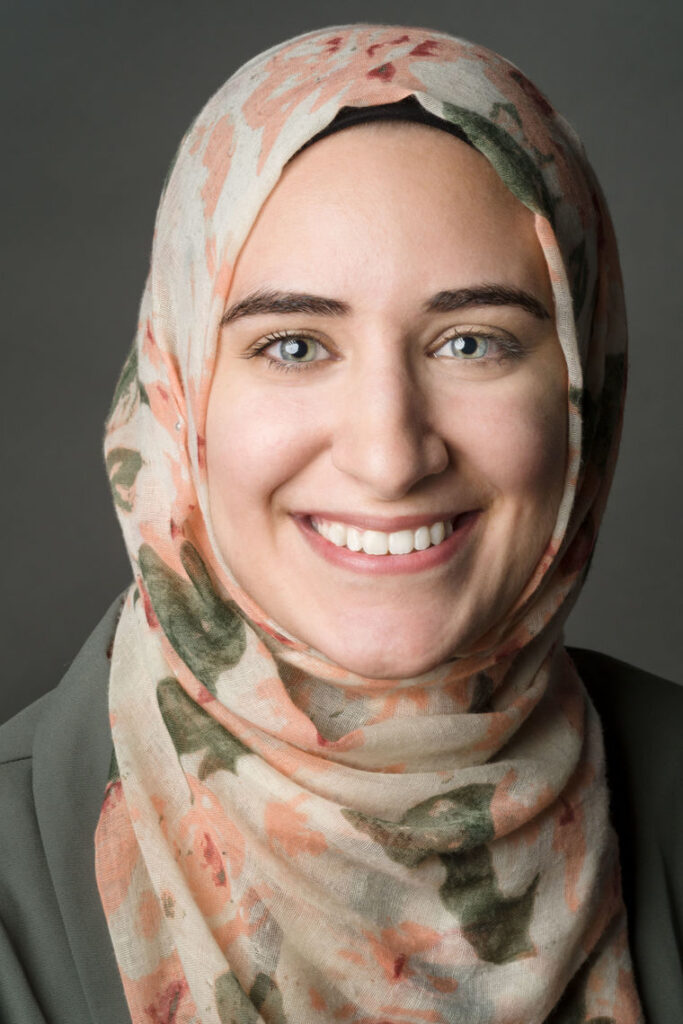- Fellow Highlights
Q&A: Public Health Expert Asmaa Rimawi Looks Back At The Fellowship
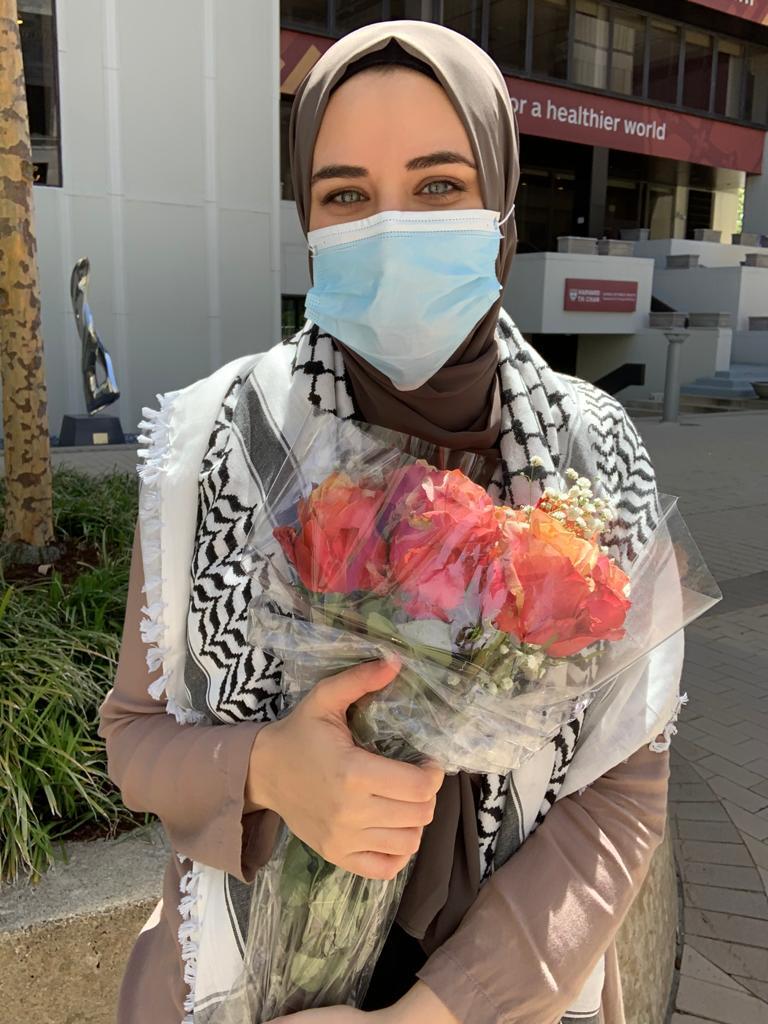
2018 Paul & Daisy Soros Fellow Asmaa Rimawi is finishing her MD at Harvard Medical School and recently completed a master’s in public health at Harvard T.H. Chan School of Public Health. Asmaa plans on using research to understand the struggles that minority communities face within the field of health, and specifically, to understand the impact of discrimination on health.
Born in New York, Asmaa is the daughter of Palestinian immigrants who came to America in 1982. In the Arab-American Muslim enclave of Bay Ridge within Brooklyn, she watched her parents fearlessly embody the American spirit by celebrating their Palestinian and Muslim identities in the shadow of 9/11.
Asmaa became the first graduate of her high school, a gender-segregated Islamic school, to attend Harvard University. For her advocacy on Muslim rights on campus, she was awarded the Harvard University Cultural Foundation Director’s Award and the Korean War Memorial Award in 2014. She graduated with an honor’s degree in near Eastern languages and civilizations, completing a thesis that explored medieval Islamic perceptions of infertility. After college, she received a master’s degree in Middle Eastern and Asian philosophy at Trinity College, University of Cambridge. That year, she explored her Palestinian heritage further, conducting field research on the Palestinian concept of sumud, steadfastness, and nonviolent resistance.
Who has inspired you from the Paul & Daisy Soros Fellowship community?
The Paul & Daisy Soros Fellowship community has come to be one of my most cherished communities. From day one, no topic of conversation was off limits, resulting in both a phenomenal sense of belonging and constant intellectual engagement. And while I originally feared that this community might reinforce societal definitions of success, I have instead found that we, as Fellows, are genuinely cared about and supported. While many individual members come to mind when I think about inspiring Fellows, it really is the community as a whole that has inspired me the most.
You’re now finishing up the second year of the Paul & Daisy Soros Fellowship program. Has the Fellowship been what you expected?
I applied to the PD Soros Fellowship mostly for the financial benefit—I wanted to be able to select a low-paying medical specialty and service underserved populations without the weight of medical school loans. But I would honestly apply again to the Fellowship even if the financial aspect had been removed; it has exceeded my expectations with regard to the support we receive from staff and co-Fellows.
Do you have any favorite memories from the past two years as a Paul & Daisy Soros Fellow?
On the final day of our three-day PD Soros Fall Conference in New York, my entire PD Soros class decided to try to untangle from a human knot. While we eventually had to call it quits due to someone’s shoulder becoming twisted into angles that no shoulder should be contorted into, it was such a hilarious experience, and came after a particularly difficult conversation about cultural suppression within historical literature. It was a great reminder that even though we as a Fellowship are committed to discussing and working on difficult issues faced by New Americans, we could also count on each other to add some levity and laughter to it all.
What advice would you give to someone who is thinking of applying to The Paul & Daisy Soros Fellowships for New Americans?
Writing the essays, particularly the essay on being a New American, was an immensely difficult process. It forced me to confront realties of my life that I had long refused to address, and to ask myself some difficult questions: who am I, why am I here, what do I want to accomplish? There were tears, first-ever conversations with family members, and realizations that I don’t know I would have come to otherwise. My advice is that if you are thinking of applying but are worried about rejection: apply anyway. The experience of writing your essays and reflecting on your New American experience is a win in and of itself.
Where are you with your graduate program now? What’s next?
I graduated from my master’s in public health, with a focus on quantitative methods, from the Harvard T.H. Chan School of Public Health and am currently part of a number of community health projects centered around expanding immigrant and refugee health and countering bias in medicine. In the coming year, most of my time will be dedicated to my work as a director of data management and analysis at 1for3, a community health workers program in Camp Aida in the West Bank, as well as work on anti-racism efforts at Harvard Medical School, where I’ll be completing my final year. ∎
Keep Exploring
-
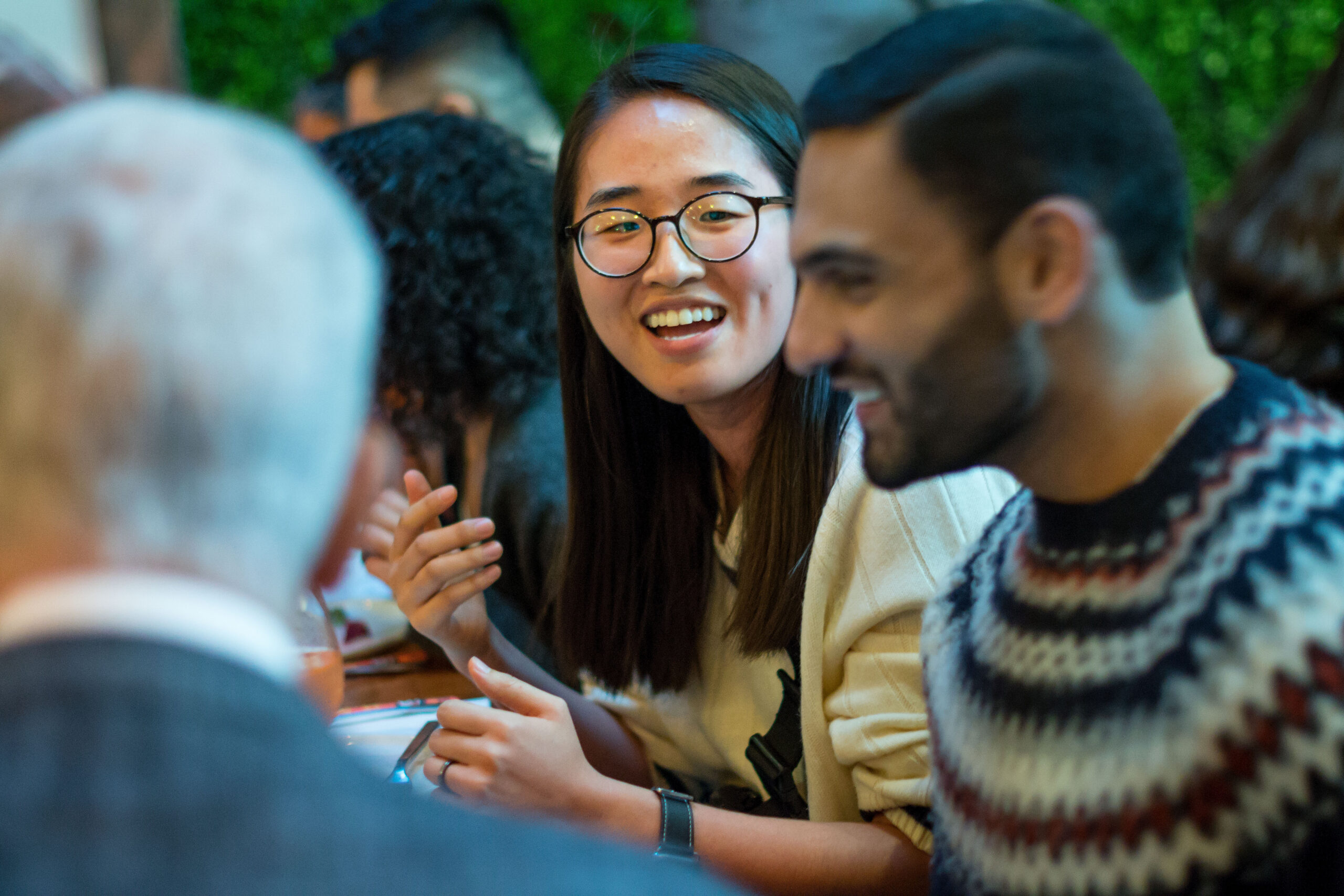 Read more: Kathy Ku Steps into Leadership as PDSFA Chair
Read more: Kathy Ku Steps into Leadership as PDSFA Chair- Board of Directors
- Fellowship News
Kathy Ku Steps into Leadership as PDSFA Chair
-
 Read more: Q&A with MD/PhD Student Silvia Huerta Lopez
Read more: Q&A with MD/PhD Student Silvia Huerta LopezQ&A with MD/PhD Student Silvia Huerta Lopez
-
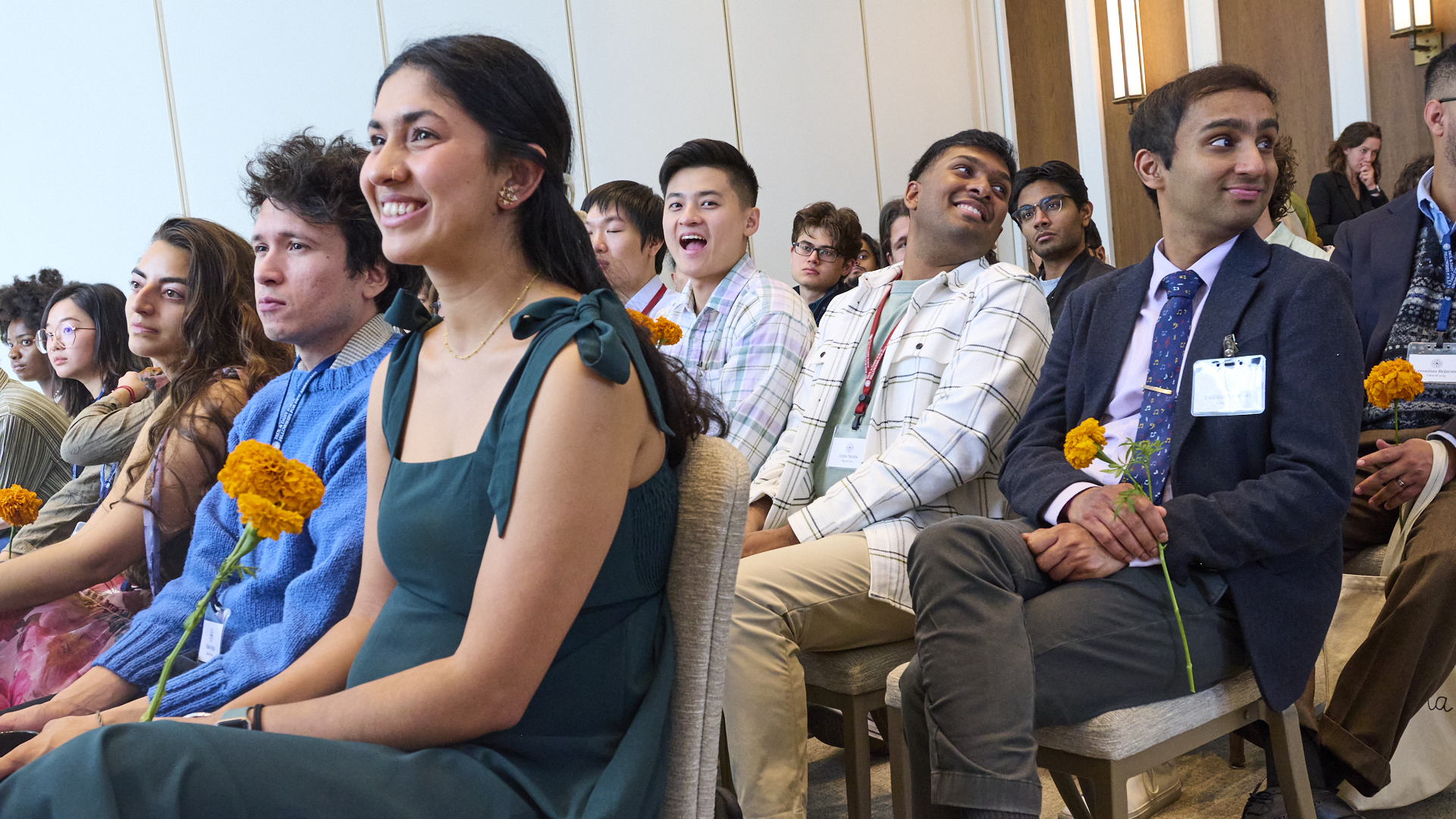 Read more: PD Soros Eligibility Guide for PhD Applicants
Read more: PD Soros Eligibility Guide for PhD Applicants- Applicant Information
PD Soros Eligibility Guide for PhD Applicants
-
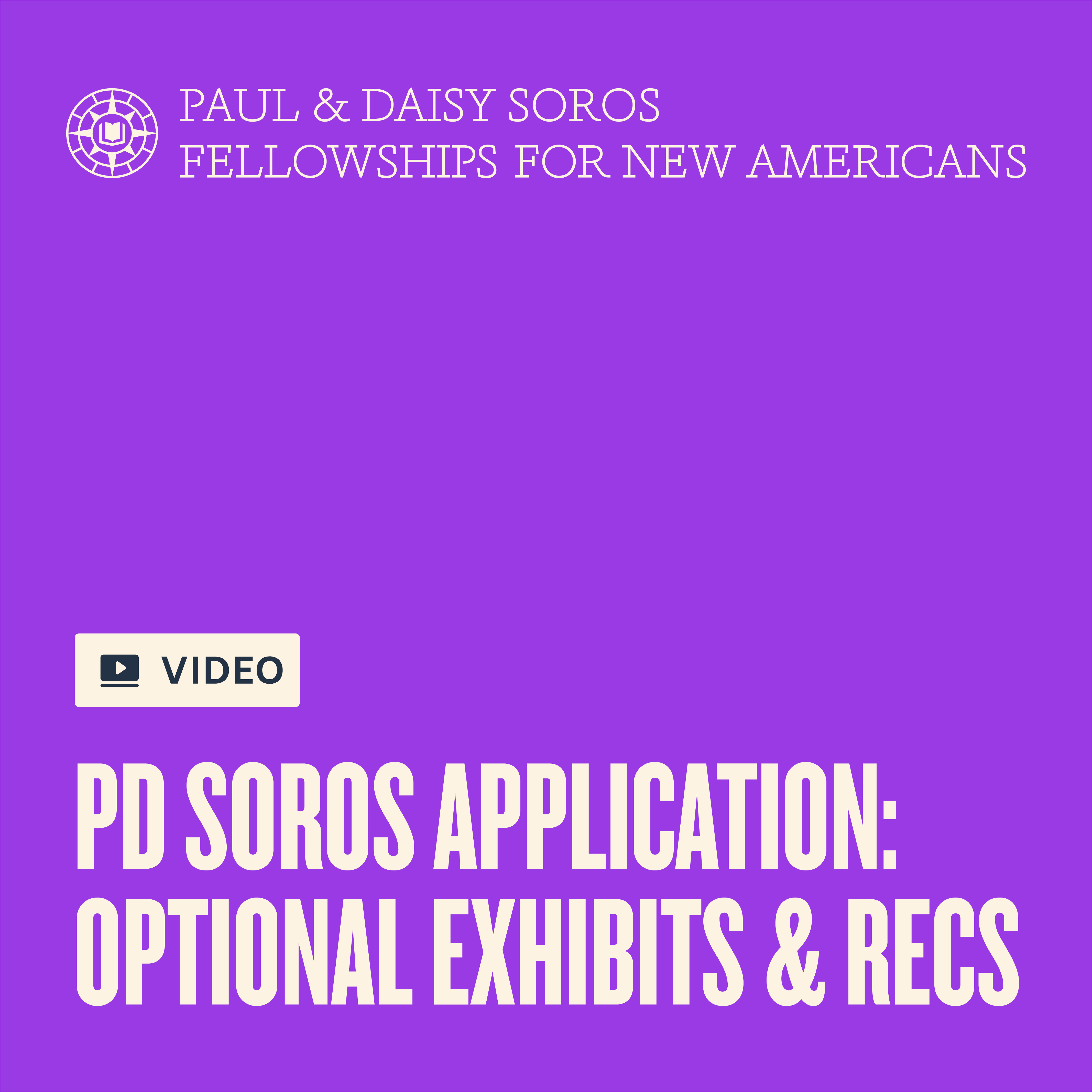 Read more: Watch: Optional Exhibits & Recommendations
Read more: Watch: Optional Exhibits & Recommendations- 2025 Information Sessions
Watch: Optional Exhibits & Recommendations
